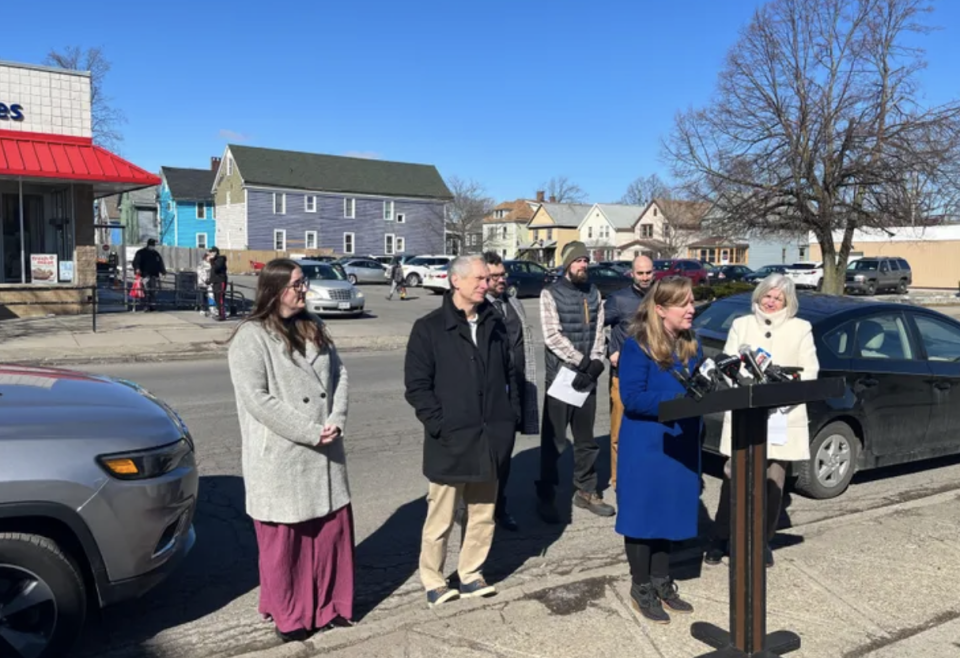News Take Action
WBEN: "Affordability legislation: NYS advocates look to combat economic inequality"
| Date: | March 7, 2023 |
| Share: |

Max Faery | March 7, 2023
Supporting hardworking families, addressing income inequality and combating inflation are on the minds of a state lawmaker and local Western New York advocates.
New York State Senator Sean Ryan and Partnership for the Public Good are looking for the state to adopt several policies to address these issues.
"In our research on economic inequality, Partnership for the Public Good often recommends a simple formula to fight poverty, to raise people's incomes and reduce their expenses," said Andrea Ó Súilleabháin, PPG's Executive Director.
"[We are] calling on New York State to adopt three policies that do just that, by increasing wages for working people, and decreasing the fines, interest and penalties that often add up to overwhelming amounts for the working poor."
The first policy is the delinquent property tax interest rate cap that protects homeowners from foreclosure.
"If you're late on your property taxes, the minimum you can be charged is 12%. And that's set by state law. So even if a town or a county wants to charge you less money, they can't. This feeds into the zombie property crisis and it takes people out of their homes," said Senator Sean Ryan.
The senator explains further, "One in five Erie County homeowners are behind in some sort of tax to municipality, and they're paying interest rates higher than credit cards. People lose generational wealth when they get moved out of their homes, then banks are super slow to foreclose, which means you have a zombie house in your community. I have a bill that would reduce the interest rate charged to homeowners all in an intention of keeping people in their homes but also to stop nickel and diming them to death."
The Public Good group is also looking to pass legislation to increase the minimum wage via the Raise The Wage Act, which will gradually increase the minimum wage across New York State to $21.25 by 2027.
"It's important to recognize that the wage that we have right now doesn't quite catch us up to where we need to be to have thriving families here in Western New York," said Russell Weaver, Director of Research at the Cornell ILR Buffalo Co-Lab. "The wage the raise the wage bill would raise the current wage gradually here in Buffalo and upstate New York, and then from there on, index that wage to both cost of living increases and economic productivity, which means that not only will workers continue to have the purchasing power they did the year before as cost of living increases, but it also means that they would get a share of the productivity that their labor helps to generate."
Thirdly, the advocates are looking end predatory court fees.
"This would eliminate the mandatory court surcharge that is applied to every conviction in New York, including traffic tickets and minor infractions," said Ó Súilleabháin. "These fees that the government attaches to every conviction, they can total hundreds of dollars, not including the amount of the fine imposed itself. Individuals are often required to pay these fees on top of a fine. In many cases, even if the judge decides not to impose a fine at all, you still have to pay these court processing fees. So these are explicit revenue raisers. They are really a form of regressive taxation on New Yorkers, the New Yorkers and Western New Yorkers that are often the least able to afford them."
Photo: Partnership for the Public Good and Sen. Sean Ryan speaking outside a Save A Lot on Grant St. in Buffalo, N.Y. Photo Credit: Max Faery - WBEN
Listen to the full press conference on WBEN's website, here.